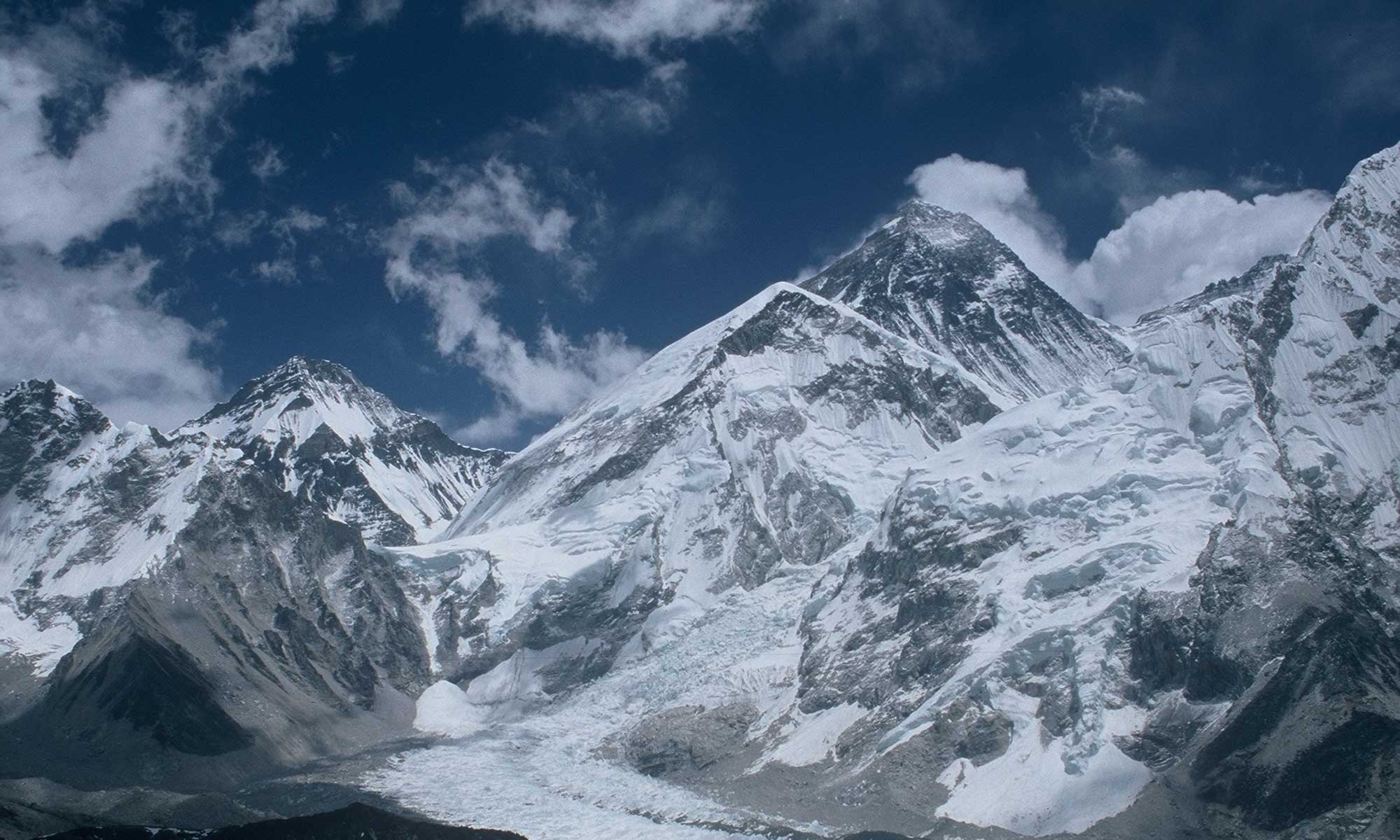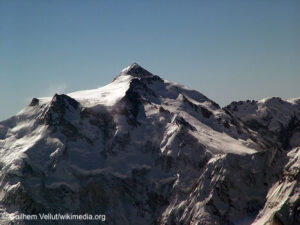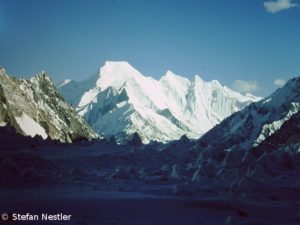
Hermann Buhl is a stubborn man. It does not bother him in these first days of July 1953 that down in Nanga Parbat Base Camp the expedition leader Karl Maria Herrligkoffer gives several times the signal to turn back. The German may be good as a fundraiser and organizer of expeditions, but not as a climber.
In contrast to Buhl, who at 28 is in top form: In 1952, the Austrian was the first person in the Alps to climb the Northeast Face of Piz Badile solo, and in February he climbed the Watzmann East Face, also solo and in winter. And now he sees a good chance to scale Nanga Parbat, this eight-thousander in Pakistan that the Nazis had declared and glorified as the “German mountain of fate“.
1,225 meters of altitude and more than six kilometers of distance still lie between the highest camp and the summit. When his tent partner Otto Kempter is not ready to leave at the agreed time, Buhl trudges off alone – without bottled oxygen. “It is starry, the crescent moon shines down and casts silvery light on the ridge rising before me, it is windless, yet clear,” Buhl later writes.
Bivouac standing
He expects his companion to catch up with him, but then registers that Kempter is giving up. Buhl now knows that he will only make it alone or not at all. On and on he climbs, simply ignoring the fact that his strength is dwindling. Pure will drives him up.
In the early evening hours of 3 July 1953, Buhl finally reaches the highest point at 8,125 meters. “I am not aware of the significance of the moment, nor do I feel anything of victory joy, I don’t even feel like a winner. I’m just glad that I’m up there and that all these exertions have come to an end for the time being.”
But Buhl is mistaken. The real ordeal is still ahead of him. He spends the night standing on a small ledge. Buhl swallows tablets against frostbite and the stimulant Pervitin to keep from falling asleep. 41 hours after setting out, he returns to the highest camp with the last of his strength. An incredible feat of energy. Buhl looks as if he has aged years in two days.
Death on the Chogolisa
In 1995, Japanese climbers will need 39 hours for the same route, despite modern equipment and accurate knowledge of the route. “This makes it clear that Buhl was ahead of his time by at least 50 years,” Reinhold Messner once told me when I asked him about Buhl’s achievement on Nanga Parbat. “For a normal mountaineer, what Buhl did was not survivable.”
The first climber of Nanga Parbat later dies at the age of only 32. As Buhl climbs with Kurt Diemberger via the summit ridge of the seven-thousander Chogolisa in the Karakoram on 27 June 1957, a cornice breaks off beneath him. Buhl falls to his death.
A few days earlier, he had made the first ascent of the eight-thousander Broad Peak with his Austrian compatriots Diemberger, Fritz Wintersteller and Marcus Schmuck: in a small team, without high altitude porters, again without bottled oxygen – a revolution in high-altitude mountaineering at the time. As on Nanga Parbat, Buhl was also there way ahead of his time.


